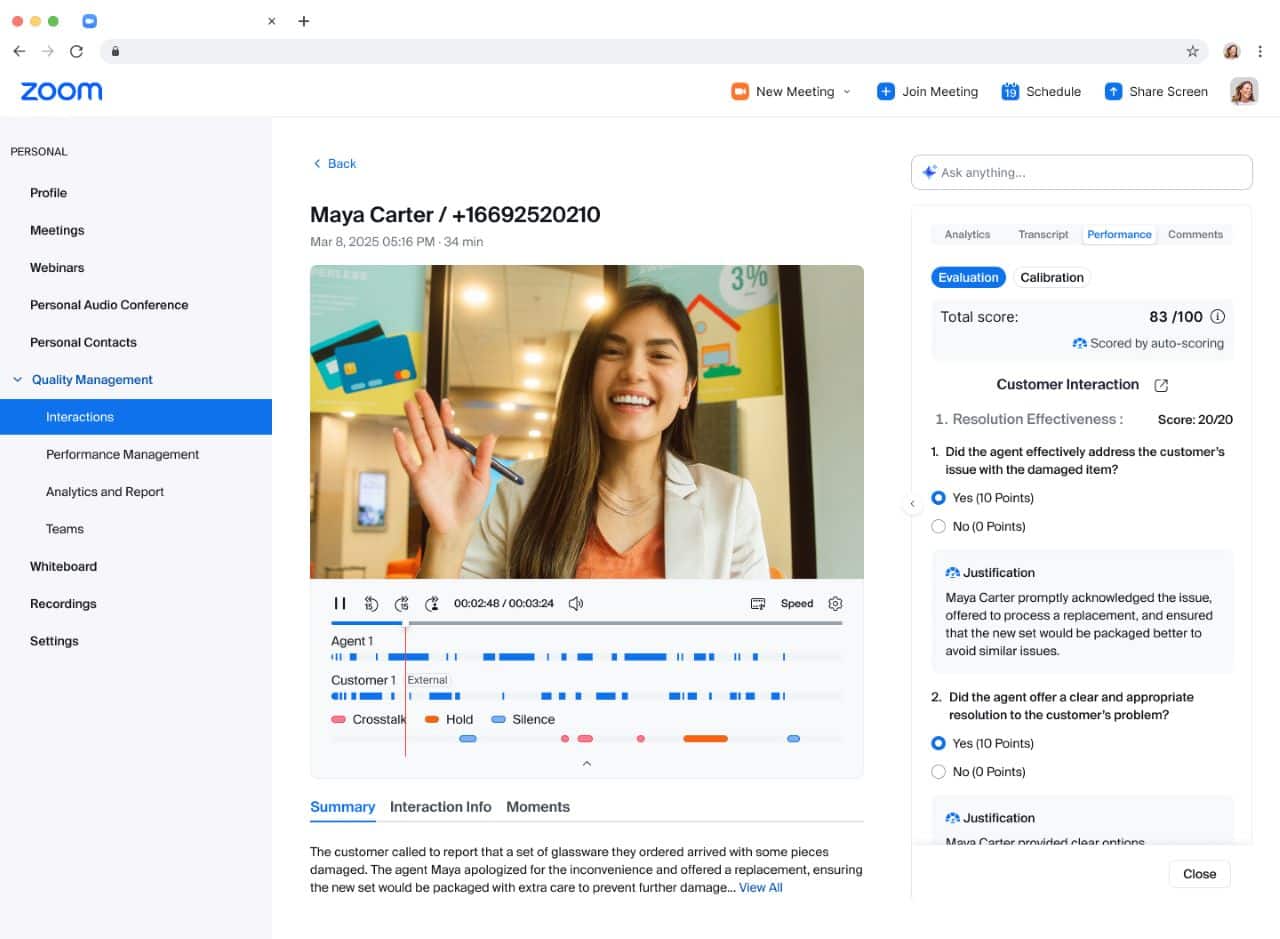Zoom has taken a significant leap in AI innovation, unveiling a new generation of AI-powered agents that aim to revolutionize digital collaboration.
Zoom Introduces Agentic AI Capabilities
At the recent Enterprise Connect event in Orlando, Zoom debuted its enhanced AI Companion, now equipped with agentic AI capabilities. These updates transform the AI Companion into a more autonomous digital assistant, capable of managing complex, multi-step tasks, making decisions, and streamlining workflows across Zoom Meetings, Team Chat, Docs, and more.
Smita Hashim, Chief Product Officer at Zoom, emphasized that this shift represents a fundamental change in how AI can drive workplace efficiency and collaboration. The new features enable AI Companion to function not just as a support tool, but as an active contributor within digital environments.
Cerence Launches xUI to Revolutionize In-Car AI
Meanwhile, AI voice assistant company Cerence has introduced its latest innovation: the Cerence xUI platform. Designed to power next-gen in-car voice assistants, xUI leverages a blend of edge and cloud technologies, enabling seamless interactions even without an internet connection.
The platform is built using Cerence’s proprietary caLLM language models, in collaboration with Nvidia and Microsoft. This ensures xUI delivers high-performance natural language understanding and context awareness directly within vehicles, opening the door for more intuitive and responsive in-cabin experiences.
Multiple global automakers have already signed long-term agreements and initiated proof-of-concept programs to integrate xUI as the foundation for their future vehicle interfaces. This move underscores the growing demand for AI-enhanced mobility solutions.
AI Infrastructure Partnerships Scale Up
In related news, major tech players including Elon Musk’s xAI, Nvidia, Microsoft, and BlackRock have joined forces to ramp up AI infrastructure development. The coalition, operating under the AI Infrastructure Partnership (AIP), aims to raise $30 billion and mobilize up to $100 billion in AI-related investments.
GE Vernova and NextEra Energy are also involved, focusing on energy solutions tailored for AI data centers. Their collaboration will support supply chain development and sustainability efforts as AI adoption intensifies globally.
These efforts align with broader initiatives like the UK’s strategy to scale AI infrastructure while prioritizing sustainability.
Robots Powered by Nvidia Serve Drinks in Georgia
In a practical display of AI’s potential, Richtech Robotics has opened a new One Kitchen location in Peachtree City, Georgia, in partnership with Ghost Kitchens America. The star of the restaurant? A humanoid robot named Scorpion, driven by Nvidia’s AI technology, serving coffees and teas with precision and personality.
Richtech’s expansion into AI-powered food service highlights how robotics and AI are merging to enhance real-world customer experiences. A similar robot, Adam, is already operating at a Las Vegas café, showcasing how AI is redefining hospitality norms.
Google Launches Gemini 2.5 with Enhanced Reasoning
Google has rolled out Gemini 2.5 Pro, its most advanced AI model yet. This version is engineered to solve complex challenges using enhanced reasoning, multimodal processing, and superior coding capabilities.
Gemini 2.5 Pro excels in math, science, and logic benchmarks, outperforming previous models without the need for performance-enhancing techniques such as majority voting. It can simultaneously process text, images, video, audio, and code, making it a versatile tool across industries.
Notably, the model achieved a state-of-the-art 18.8% score on Humanity’s Last Exam, proving its capacity to approach human-level reasoning in assessments designed by domain experts.
What This Means for the Future of AI
From workplace collaboration to in-car experiences and robotics in retail, these developments signal a broader shift toward AI systems that are more autonomous, adaptive, and deeply integrated into daily life. As organizations continue to invest in intelligent infrastructure, the line between human and machine capabilities is becoming increasingly blurred.
Zoom’s agentic AI and Cerence’s voice tech are just the beginning. As platforms evolve, expect smarter, more proactive AI agents to reshape not just how we work—but how we live, move, and interact every day.







